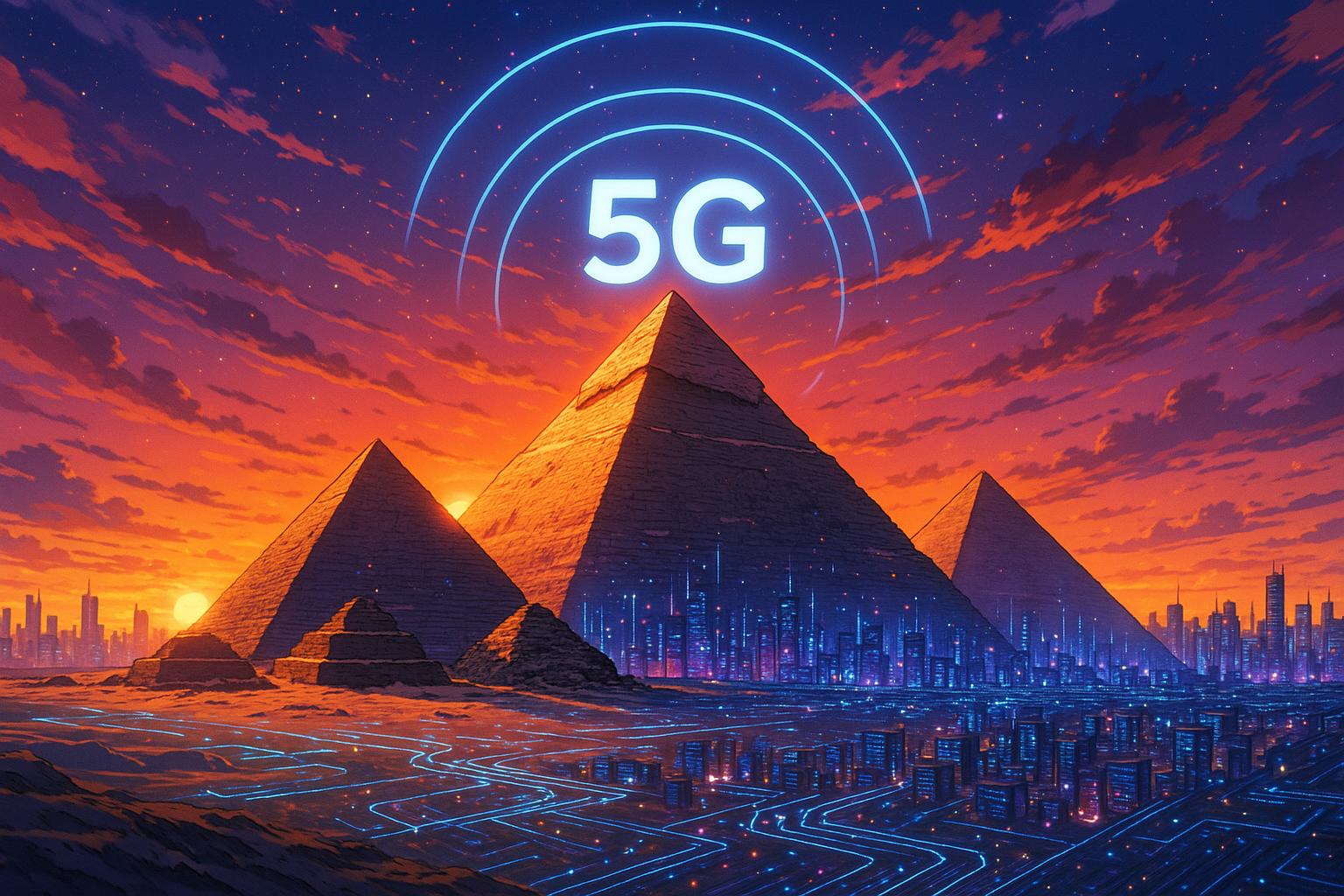Egypt is embarking on a transformative journey toward a “Digital Egypt,” underpinned by a strategic vision that identifies the Information and Communications Technology (ICT) sector as a vital driver of economic growth. This vision was articulated by Prime Minister Mostafa Madbouli during the recent launch of 5G mobile services at the historic Pyramids area in Giza.
During the launch, Madbouli asserted the significance of the ICT sector, stating that it should be viewed alongside traditional economic foundations such as agriculture, industry, and tourism. “We have a deep conviction in the potential of this sector,” he remarked, suggesting a shift towards greater reliance on digital technologies for economic advancement. The event witnessed participation from notable figures, including Minister of Communications and Information Technology Amr Talaat, various senior officials, and representatives from key mobile network operators like Vodafone Egypt and Orange Egypt.
As part of Egypt's mission to revamp the ICT landscape, Madbouli emphasised the need to transition the ICT sector from a service-oriented approach to one centred on production. He reiterated President Sisi’s earlier message about harnessing the capabilities of the ICT sector to enhance productivity, job creation, and export growth. The Prime Minister hailed the 5G rollout as a pivotal moment in the nation's digital transformation journey, which aims to modernise service delivery and foster innovation across sectors including healthcare, education, and government services.
The launch of Vodafone Egypt's 5G network further underscores this digital commitment. Vodafone Egypt claims that this revolutionary technology will provide enhanced connectivity, enabling high-speed streaming and facilitating advanced services across critical sectors such as healthcare and industry. With over 2,000 sites activated, spanning from Cairo to Upper Egypt, the rollout promises robust telecommunications services aimed at bolstering the country's digital infrastructure. Mohamed Abdallah, CEO of Vodacom International Markets and Vodafone Egypt, described the launch as a historic milestone that embodies their responsibility as a digital enabler. He noted that the expanded 5G network will not only enhance connectivity but also promote smart city developments in alignment with Egypt’s Vision 2030 objectives.
In keeping with this ambition, Egypt has made substantial investments—over EGP 150 billion—since 2018 in enhancing its digital infrastructure, as reported by Amr Talaat during the '5G and Beyond' Forum. These funds have been directed towards the expansion of fiber-optic networks and other foundational technologies that are critical for modernising various sectors. Furthermore, partnerships with global firms like Ericsson and e& Egypt are expected to play a pivotal role in the deployment of 5G services, which aim to bring faster speeds and improved connectivity to consumers and enterprises alike.
Looking ahead, Telecom Egypt has also announced plans to commercially activate its 5G networks by the first quarter of 2025. This indicates a broader effort among telecom operators to ensure widespread access to advanced technological services. The introduction of 5G is anticipated to not only enhance connectivity across multiple sectors—including agriculture and healthcare—but to also complement and gradually replace existing 4G services.
The implications of these developments are significant for Egypt, with the government expecting to attract up to $675 million in foreign direct investment from the sale of 5G licenses to telecom operators. As the nation stands on the brink of this technological revolution, the anticipation surrounding 5G reflects a broader commitment to fostering economic growth and improving the quality of life for citizens through enhanced digital connectivity.
📌 Reference Map:
Source: Noah Wire Services
